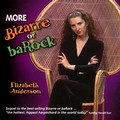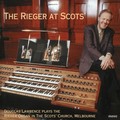
François Couperin
Couperin belonged to a family of several composers from the mid-17th to mid-19th centuries. He was organist in the chapel of Louis XIV at Versailles, and was the greatest French master of the harpsichord.
He was, for the harpsichord, what Italian composer Corelli was for the violin, and was an admirer of Corelli's music and was influenced by him. Couperin acknowledged his debt to the Corelli. He introduced Corelli's trio sonata form to France.
His most famous book, L'art de toucher le clavecin ("The Art of Harpsichord Playing", published in 1716), contains suggestions for fingerings, touch, ornamentation and other features of keyboard technique.
Couperin's four volumes of harpsichord music, published in Paris in 1713, 1717, 1722, and 1730, contain over 230 individual pieces, which can be played on solo harpsichord or performed as small chamber works. These pieces were not grouped into suites, as was the common practice, but ordres, which were Couperin's own version of suites containing traditional dances as well as descriptive pieces. The first and last pieces in an ordre were of the same tonality, but the middle pieces could be in other closely-related tonalities. These volumes were loved by J.S. Bach and, much later, Richard Strauss, as well as Maurice Ravel who memorialized their composer with Le tombeau de Couperin (Couperin's Memorial).
Many of Couperin's keyboard pieces have evocative, picturesque titles and express a mood through key choices, adventurous harmonies and (resolved) discords. They have been likened to miniature tone poems. These features attracted Richard Strauss, who orchestrated some of them.
Johannes Brahms's piano music was influenced by the keyboard music of Couperin. Brahms performed Couperin's music in public and contributed to the first complete edition of Couperin's Pièces de clavecin by Friedrich Chrysander in the 1880s.
The early-music expert Jordi Savall has written that Couperin was the "poet musician par excellence", who believed in "the ability of Music [with a capital M] to express itself in prose and poetry", and that "if we enter into the poetry of music we discover that it carries grace that is more beautiful than beauty itself".
Compositions by François Couperin appear on
The Pleyel Harpsichord
Roger Heagney plays one of the last harpsichords (made in 1963) by the French Pleyel piano company, which was founded in 1807 and continued to make pianos until its doors were closed for the last time in 2014. The Pleyel ‘Concert Grand Harpsichord’ has a unique sound and variety of colours controlled by a set of seven pedals.
Composer
Masters of Baroque
Trio Polyphonica was active between 1980 and 1990 and performed a wide repertoire of music spanning more than 300 years. This disc features works by Frescobaldi, Hellendaal, Couperin, Leclair, Rameau and Corelli.
Composer
More Bizarre or baRock
"The hottest, hippest harpsichord in the world today" said one critic of the best selling Bizarre or baRock. Melbourne harpsichordist Elizabeth Anderson has returned to the studio for the long awaited sequel.
Composer
Golden Sounds
Ian King returns to the studio once more to enthrall us with the golden sounds of his tuba. Featuring works by Falla, Corelli, Rimsky-Korsakov, Debussy, Ravel, Gershwin and much more!
Composer
Venice to Versailles
Venice and Versailles represent the two dominant and contrasting styles of music in Europe during the Baroque period: Venice, the robust, joyous exuberance and barocco character of the Italian style, and Versailles, the refinement, delicacy, elegance and douceur of the French.
Composer
The Rieger at Scots'
So just what does one play to demonstrate the resources of a large, beautifully voiced new organ? Douglas Lawrence has tried here to show something of the immensely wide tonal palette available on the Rieger organ at The Scots' Church in Melbourne, completed in 1999.
Composer
The Bedroom of the King (La Chambre du Roi)
Intimate music from the court of Versailles and the salons of Paris performed by eminent Early Music ensemble, Elysium.
Composer
Breath of Creation
Flutes of two worlds. Performing on shakuhachi, baroque flute and recorder, these two inspiring performers - renowned in their own fields - join forces to present a magical display of virtuosic delights and evocative sound-scapes.
Composer
Fandango
Flamboyant Spanish harpsichord music performed by harpsichordist Elizabeth Anderson; with Douglas Lawrence, organ.








